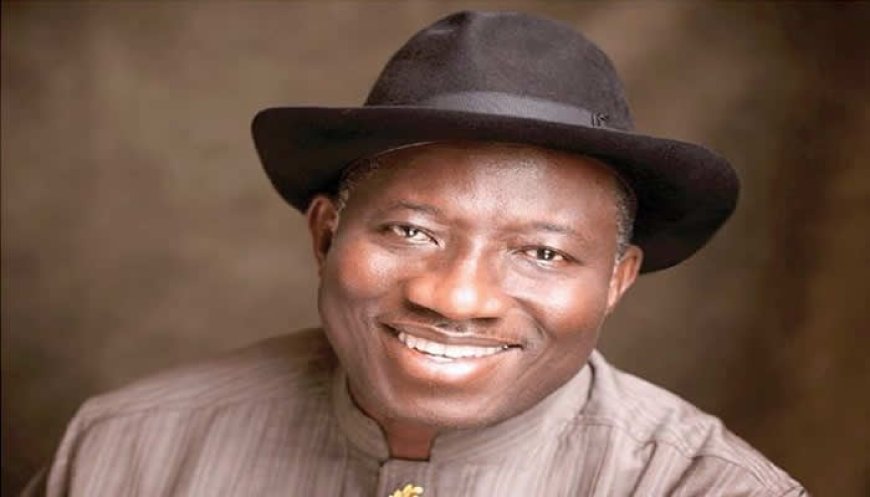Why I Stepped Back From Politics — Jonathan

Former President Goodluck Jonathan says his membership in the West African Elders Forum is one of the reasons for his continued absence from active and partisan politics.
Jonathan made the remark in Abuja while speaking at an event marking the 10th anniversary of the Goodluck Jonathan Foundation (GJF) on Thursday, themed “Legacy of Impact, Celebrating Our Journey.”
The News Agency of Nigeria reports that the event also featured a gala dinner held in celebration of Jonathan’s 68th birthday.
Explaining his absence from active politics to associates, Jonathan said WAEF membership comes with a strict condition of non-partisanship. He described the forum as a preventive diplomacy initiative composed of former heads of state who visit countries within the sub-region during elections to mediate and prevent crises arising from poorly managed polls.
The idea is, yes, we observe the elections, but we are not co-observers,” he said. “We go there to make sure that if we notice anything negative emerging, we intervene and try to see what we can do so that those issues do not snowball into a full crisis.”
Jonathan added: “The condition to be a member of the WAEF is that you must be a former president within the sub-region and a former president of ECOWAS. One clear condition is that you will no longer be an active politician, and that is why I am disappointing most of my political associates. They expect me to play an active role in politics, but before I do, I must first resign from the WAEF.”
On the state of the nation, Jonathan decried what he termed “rascality” in politics, urging politicians to conduct themselves with decorum and responsibility.
He observed that unlike professions such as teaching, which require training and certification, many people enter politics and assume leadership positions without proper preparation.
“We must change the face of politics. We must see politics as a business of responsible individuals, not a business of rascals that they play in the motor park,” he said.
The former president also expressed deep sadness over the recent kidnapping of about 25 girls in Kebbi State, noting that the incident reminded him of the abduction of the Chibok girls during his tenure. He offered condolences to the families of those who lost their lives, including a vice principal, and called for prayers for the safe rescue of the abductees and an end to such tragedies.
Recounting the origins of his foundation after losing the 2015 general election, Jonathan disclosed that businessman Tony Elumelu suggested the idea. While he initially considered broad areas like education and poverty alleviation, advisers recommended focusing on areas where he had global credibility.
He said democracy was chosen as the Foundation’s focus because of his role in strengthening the electoral commission and conceding defeat before the 2015 elections concluded — a gesture celebrated worldwide. Jonathan added that despite his academic and professional background in environmental protection and coming from the Niger Delta, he chose to leave environmental issues to others and concentrate the Foundation’s efforts on democracy and governance.
In her remarks, GJF Executive Director Ms. Ann Iyonu described the event as a moment of reflection on a decade of dedication to inclusive democratic governance, peace building, and development across Africa.
Iyonu said the Foundation has remained committed to advancing democracy, equity, and progress through strategic initiatives and partnerships. She noted that ten years later, GJF proudly declares that “together they have turned bold ideas into transformative action.”
She highlighted the Foundation’s role in strengthening democratic institutions through election mediation missions, observation missions, policy dialogues, and strategic advocacy across the continent. She also noted that the Foundation’s annual Democracy Dialogue, inaugurated in 2021, has become a vital platform for engagement and strategic action.
“This year in Accra, we gathered under the theme ‘Why Democracies Die,’ a timely inquiry into the structural and systemic factors undermining democratic resilience in Africa and globally,” she said.
Iyonu added that the Foundation’s peace building efforts have fostered peaceful political transitions, promoted inclusive governance, and advanced the security of African states and citizens within the rule of law, human rights, and democratic principles.
She further stated that the Foundation has contributed to preventing violent extremism online and offline, improved trust between state institutions and citizens, and expanded Africa’s global presence through international partnerships.
(NAN)

 admin
admin 


